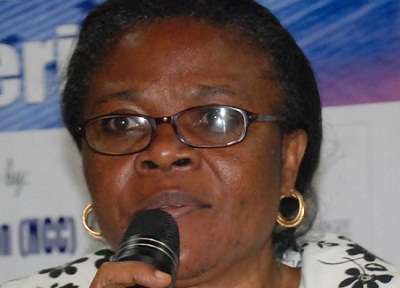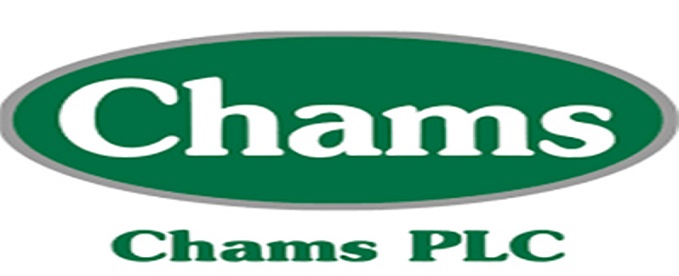E-Business
States, Local Govts. Get August Deadline on .ng

State governments’ ministries and parastatals as well as local governments in the country have till August this year to host their websites on the country’s top level domain name .ng, in a bid to protect state mechanism from deliberate and unintended abuse, Nigeria CommunicationsWeek has learnt.
.ng is Nigeria’s Code Top Level domain name, an Internet top-level domain generally used or reserved for Nigeria only.
The aim is to set up and operate a unified ICT infrastructure platform that permeates through all tiers of government and its agencies.
The creation of the .ng domain based websites and email addresses followed discovery that some civil servants have inadvertently transmitted sensitive government data and information through their own free email addresses which pose national security challenges.
Mary Uduma, president, Nigeria Internet Registration Association (NIRA) said that according to federal government directive to that effect, all state governments, their ministries and parastatals as well as local government are to host their website and emails on .ng by the end of August this year.
Uduma, said, to meet the deadline, National Information Technology Development Agency (NITDA) is collaborating with NIRA to ensure a smooth migration for the states and local governments.
She noted that for the federal government ministries, departments and agencies compliance to their directive, a steering committee has been set up under the supervision of head of service of the federation with Galaxy Backbone the federal government registrar for the migration to work out modalities for the migration.
Nigeria CommunicationsWeek recalled that e 2009, the federal government through Galaxy Backbone Plc, a public enterprise of the government had begun moves to replace so-called free email accounts like Yahoomail, hotmail used by government officials for communication with accounts ending in .ng.
Uduma added that NIRA is expecting to have some 2,000 websites from governments’ ministries, departments and agencies with additional 40,000 emails when the directives are fully complied with.
Aside government ministries and parastatals, she said that .ng registrars with the approval of NIRA are planning promos aimed at creating awareness on .ng.
“Registrars are planning promos such as Centenary promo among others where some websites will be registered free to increase the number of website on .ng. From these promos we are targeting about 150,000 in addition to existing 50,000 registrations and others we could achieve our projection of 250,000 registrations at the end of the year,” she said.
Nigeria CommunicationsWeek investigations however revealed that most businesses in the country shun .ng but rather prefer to register -ng.com or ng.com as against .ng.
Same is the case with emails where senior government officers are using yahoo, gmail among other email accounts against secured email account of their ministry account.
Ope Odusan, managing director of Africa.com Domain Services, said that the numbers of electronic mail also known as email on yahoo portal which belong to Nigerians are put at 2 million.
He explained that said that yahoo was able to attract this number of Nigerians to its email portal because the company offered the service free. He urged the federal government to replicate similar incentive to encourage Nigerian businesses to register with .ng which is the country’s top level domain name.
According to him, government could offer incentives such as one year tax break for any business that is registered in .ng or enter into public private partnership with information and communications technology companies that are capable of building hybrid data centres using energy efficient power to make the hosting of websites in the country cheaper.
Nigeria CommunicationsWeek investigations revealed that there are only 50,000 businesses registered in .ng while .com, .net and .org account for 600,000 of Nigerian businesses.
It was also gathered that other foreign domain names outside the three mentioned has some 50,000 Nigeria businesses on them, bringing the total of 650,000 of Nigerian businesses that are registered with foreign domain names.
E-Business
NITDA Warns Nigerians of Actively Exploited Microsoft Office Vulnerability

National Information Technology Development Agency (NITDA) has issued an urgent cybersecurity warning about a serious Microsoft Office vulnerability (CVE-2026-21509) that attackers are actively exploiting.

This advisory, shared through Nigeria’s Computer Emergency Response Team (CERRT.NG), highlights the risks of this flaw and recommends immediate action to protect systems.
Microsoft has released quick security updates to fix this vulnerability, which has a severity score of 7.8, showing it is a serious risk. Attackers have already used it in targeted attacks.
CVE-2026-21509 affects multiple versions of Microsoft Office, including Office 2016, Office 2019, Microsoft 365 Apps, Office 2021, and later versions.
This flaw allows attackers to bypass security features meant to stop harmful Object Linking and Embedding (OLE) controls. OLE is an older Microsoft technology that can be used to embed links or content, but it has often been exploited by malware.
By exploiting this flaw, attackers can create specially designed Office documents.
When a user opens these documents, they can run malicious code or gain further access to the system.
Exploitation requires user interaction, meaning attackers often trick people into opening harmful Word, Excel, or other Office documents. Common methods include using email attachments or files from untrusted sources.
Because Microsoft confirmed that the vulnerability is being actively exploited, they have made emergency security updates available outside their usual schedule. Users and organisations should:
- Install the latest Microsoft Office security updates for all affected versions.
- Restart Office applications for Office 2021 and later to ensure that the updates take effect.
- Use registry-based settings for protection if updates can’t be applied right away.
- Follow good cybersecurity practices, like using endpoint protection and filtering emails.
Microsoft’s updates for Office 2021 and newer versions are automatically applied, but need a restart of the applications to be active.
E-Business
NDPC Investigates over 1,000 Schools over Data Privacy Compliance

Nigeria Data Protection Commission (NDPC) has commenced an investigation into over 1,000 education institutions across the country over compliance with the Nigeria Data Protection Act (NDP Act), 2023.

The move affects federal, state and private universities, polytechnics, colleges of education and technical colleges, marking one of the largest sector-wide compliance checks since the enactment of the law.
In a public notice issued on Thursday by Babatunde Bamigboye, head, Legal, Enforcement and Regulation, the Commission said the probe forms part of its ongoing sector-by-sector enforcement drive aimed at safeguarding the fundamental rights and freedoms of data subjects, as well as strengthening the legal foundation of Nigeria’s digital economy through the trusted use of personal data.
The NDPC directed the affected institutions to submit, within 21 days, evidence of filing their 2024 Data Protection Compliance Audit Returns, proof of designation or appointment of a Data Protection Officer including relevant contact details and a summary of technical and organisational measures adopted to protect personal data within their establishments.
It also requested evidence of registration as a Data Controller or Processor of Major Importance as required by law.
The Commission warned that failure to comply with the notice may result in the issuance of enforcement orders, imposition of administrative fines and possible criminal prosecution in accordance with the provisions of the NDP Act, 2023.
It stressed that compliance is mandatory and not optional for institutions that process large volumes of personal data
The education sector remains one of the biggest handlers of sensitive personal information in the country, including students’ academic records, admission details, biometric data, financial information and staff records.
With increasing digitalisation of admissions, online learning platforms and electronic documentation systems, concerns over data breaches and weak privacy safeguards have grown in recent years.
The Commission maintained that the investigation is in line with its statutory mandate under relevant sections of the Act empowering it to monitor, investigate and enforce compliance across sectors.
E-Business
Chams Carves Out Subsidiary to Support Africa’s Digital Transformation

Chams Holding Company Plc, (Chams Holdco), digital payments and verification firm, has created a new subsidiary which is expected to strengthen the push for Africa’s digital transformation.

The creation of the new subsidiary, ChamsCorp Plc, which took effect from February 1, was made known in a filing to the Nigerian Exchange Limited , according to an announcement.
Chams said that the new subsidiary, which is its 5th, will give a new dimension to its more than 40 years of work in building the digital ecosystem not only in Nigeria, but across the continent and the rest of the world.
The newly created company will focus on three major aspects, namely the manufacturing of digital devices and development of digital infrastructure and services; data center design, construction and operations, and the development and implementation of AI infrastructure and intelligent systems.
It will also contribute to its parent company’s digital ID, digital verification, and trust services offering.
“For nearly four decades, we’ve enabled trust in transactions and identity. Now, we go furthe”
Chams is expanding into AI, data centre infrastructure, and intelligent systems, building the backbone for Africa’s digital transformation,” the company wrote in a LinkedIn post.
“We are not just participating in the future. We are engineering it,” the message added.
According to the Chams announcement, a decision of its Board of Directors appointed members of the pioneer board of ChamsCorp Plc, with renowned banker Mohammed Bashir Yunusa designated as Chairman.
He is described as a well-known finance expert who specializes in deal structuring, corporate and retail finance, business strategy, digital transformation, and Islamic Finance and Banking.
With more than 10 years of experience in the financial services industry, Yunusa currently serves as head of Consumer and Digital Banking for Non-Interest Banking Retail at Sterling Bank Nigeria, and will also serve as a non-executive director on the board.
“Chamscorp is designed to take our most ambitious ideas to market at speed and scale. As Africa’s digital economy evolves, we are focused on delivering transformative solutions that empower governments, businesses, and citizens alike,” Femi Oyenuga, CEO, Chams, commented on the development.
Chams has over the years played a major role in contributing to Nigeria’s digital ID ecosystem development to facilitate access to financial services.
In 2023, the company Group Chairman publicly stated that in providing such digital services to the Nigerian government, it had incurred debts estimated at $100 million and were planning to change their business model as a result.

 Telecom3 days ago
Telecom3 days agoTerra Moves to Expand in African Drone Sector, Secures $22m Funding

 Telecom3 days ago
Telecom3 days agoTemu Assures Compliance Amid Nigeria Data Privacy Probe

 E-Financial3 days ago
E-Financial3 days agoDMO Offers ₦800bn FGN Bonds in February Auction Surge

 E-Financial3 days ago
E-Financial3 days agoDanjuma, Taj Bank Staff Jailed for 5 Years over N22m Fraud

 E-Financial3 days ago
E-Financial3 days agoKPMG Outlook Reveals Financial Services CEOs Double down on AI, Resilience and Growth in 2026

 Telecom3 days ago
Telecom3 days agoMTN Group Announces Proposed Full Acquisition of IHS Towers

 News3 days ago
News3 days agoChianugo, Nigerian $150m suit Against Google, GoDaddy.com Stalled due Judge’s Absence

 General News3 days ago
General News3 days agoFG to Review MTN’s $6.2Bn IHS Acquisition — Tijani

























